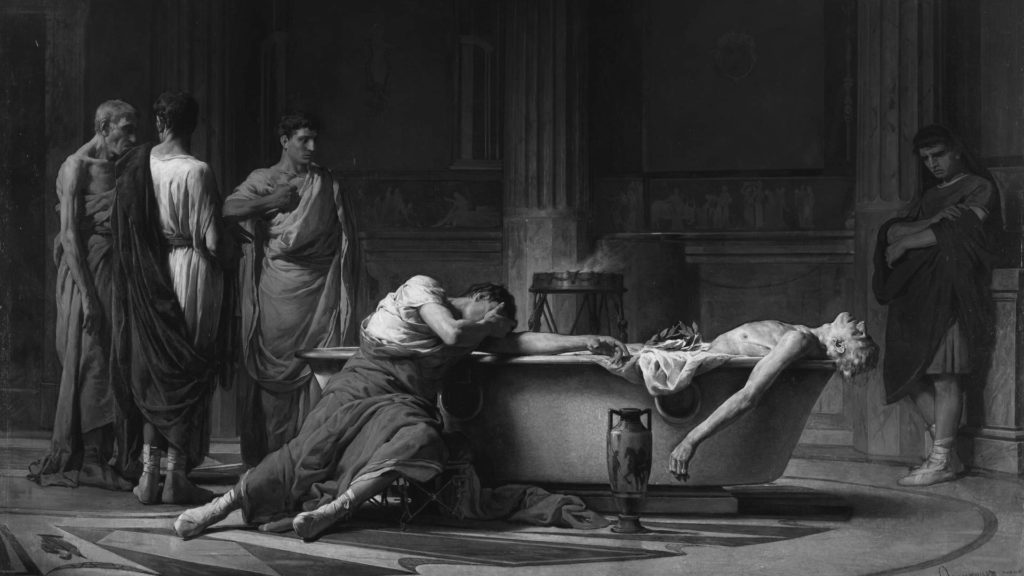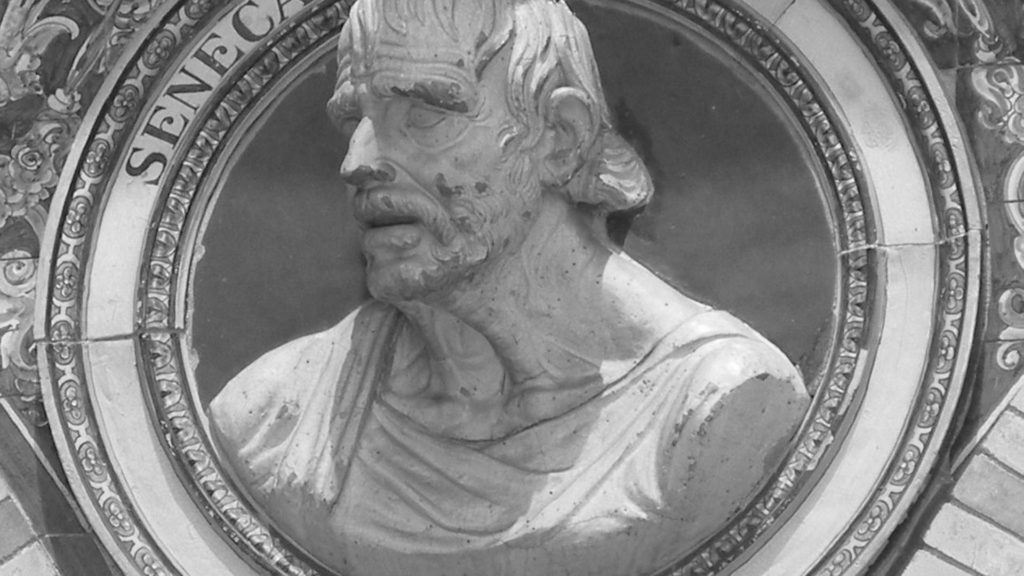Stoicism is perhaps the most famous philosophy coming from Ancient Rome. In the Empire, stoicism helped inspire many people to live virtuous lives, and live in harmony with what most philosophers referred to as the Stoa; the way people should live. One of these stoics is the famous Seneca, who despite his turbulent life wrote some of the most beautiful works in existence. One of these works is now known as his Letters, a work that features in today’s article.

The life of a Roman philosopher
Seneca was quite the enigmatic figure. Born in 4 BC, his life was marked by many dangers. Not only did he not have the fittest physique, he also had to manoeuver through many political instabilities. These were for example the reigns of Emperor Tiberius (14-37) and Emperor Caligula (37-41). As a formidable and eloquent senator, Seneca became an eyesore for Caligula. In return, the emperor ordered him to commit suicide, a favourite death sentence amongst early emperors. Due to his falling health however, the emperor was convinced Seneca would not live for much longer. In an ironic turn of events, his unhealthy body saved him from certain death.
Even under the formidable emperor Claudius (41-54), Seneca was at the center of problems. He was accused by Melissa, wife of emperor Claudius, to have engaged in adultery with Julia Livilla, sister to Caligula. The Roman senate declared a death sentence, but commuted this to exile. After eight years in exile on Corsica, he returned in 49. Mostly due to the influence of Agrippina, the new wife of Claudius. She recalled the philosopher and turned him into the tutor for her son, future emperor Nero.
Between 54 and 62, after Claudius died and Nero became emperor, he thus acted as advisor to the young ruler. Nero is infamous for his brutality and although Seneca tried his best to guide him, he ultimately felt useless in this task. This all culminated in the year 64, when Nero discovered a plot to assassinate him. One of the people that was accused of being a conspirator, was Seneca himself. After long thinking, Nero ordered him to commit suicide and so his life ended on a tragic note.

Contemplation, activity, friendship
Although his life came to a tragic end, Seneca was at peace with his destination. Largely due to the influence of his own philosophy, and the beautiful lessons that it contained. Seneca’s works were inspired by previous stoics such as Zeno and Cleanthes. He was also largely influenced by Epicurus works, as witnessed in his Letters. Epicurus then serves as a moral framework, where Seneca derives his ethical maxims from. Platonism also briefly appears, although the stoic philosophy of Seneca remains clearly distinct.
Because the stoic philosophy was very popular in this period amongst the upper regions of Roman society, much of Seneca’s philosophy tackles the political theatre. However, much of his work deals more with a framework for leading a good life. Especially his Letters are very concise and accessible lessons for a broader audience. In his own words, the Letters are an ethical statement, providing lessons for future generations too. Most important for Seneca were the human aspects of contemplation, having an active life, and of course the benefits and beauty of friendship.

Simplicity and straightforwardness
So what about the Letters in specific? These are a series of letters he wrote during his exile on Corsica. In these letters, he has an exchange with his friend Lucilius, procurator of Sicily. Although a personal exchange, Seneca dealt with many moral issues in these letters and wrote them specifically with a broader audience in mind.
In these letters, we find deep philosophical discussions on the moral issues of his time. Yet despite talking on a very high metaphysical level, the letters also contain very pragmatic and beautiful lessons we may apply to our daily lives. Perhaps somewhat ironically, it was precisely the uncertainty of his daily existence that prompted his beautiful writings. Despite being in the worst of situations, his letters contain a warm sense of comfort and quietness. For instance, if we turn to letter XLVIII (48), we read:
‘Tell them what nature has made necessary and what she has made superfluous. Tell them how simple are the laws she has laid down, and how straightforward and enjoyable life is for those who follow them and how confused and disagreeable it is for others who put more trust in popular ideas than they do in nature…
…Which of them removes cravings or brings them under control? If only they were simply unhelpful! They’re actually harmful…
…Keep clear, then, my dear Lucilius, as far as you can, of the sort of quibbles and qualifications I’ve been mentioning in philosophers. Straightforwardness and simplicity are in keeping with goodness. Even if you had a large part of your life remaining before you, you would have to organise it very economically to have enough for all the things that are necessary; as things are, isn’t it the height of folly to learn inessential things when time’s so desperately short!”

A beautiful insight
In short, time on this earth is too short to worry about the unnecessary things in life, as well as to focus on those things that actually harm us. Simplicity and straightforwardness provide us with enough ingredients to make a good life for ourselves. If you want to read more on his letters, take a look at your favourite bookstore and see if they have a copy. Because, despite all the circumstances life may throw at you, Seneca shows us that there is always beauty in it.

Recent Comments